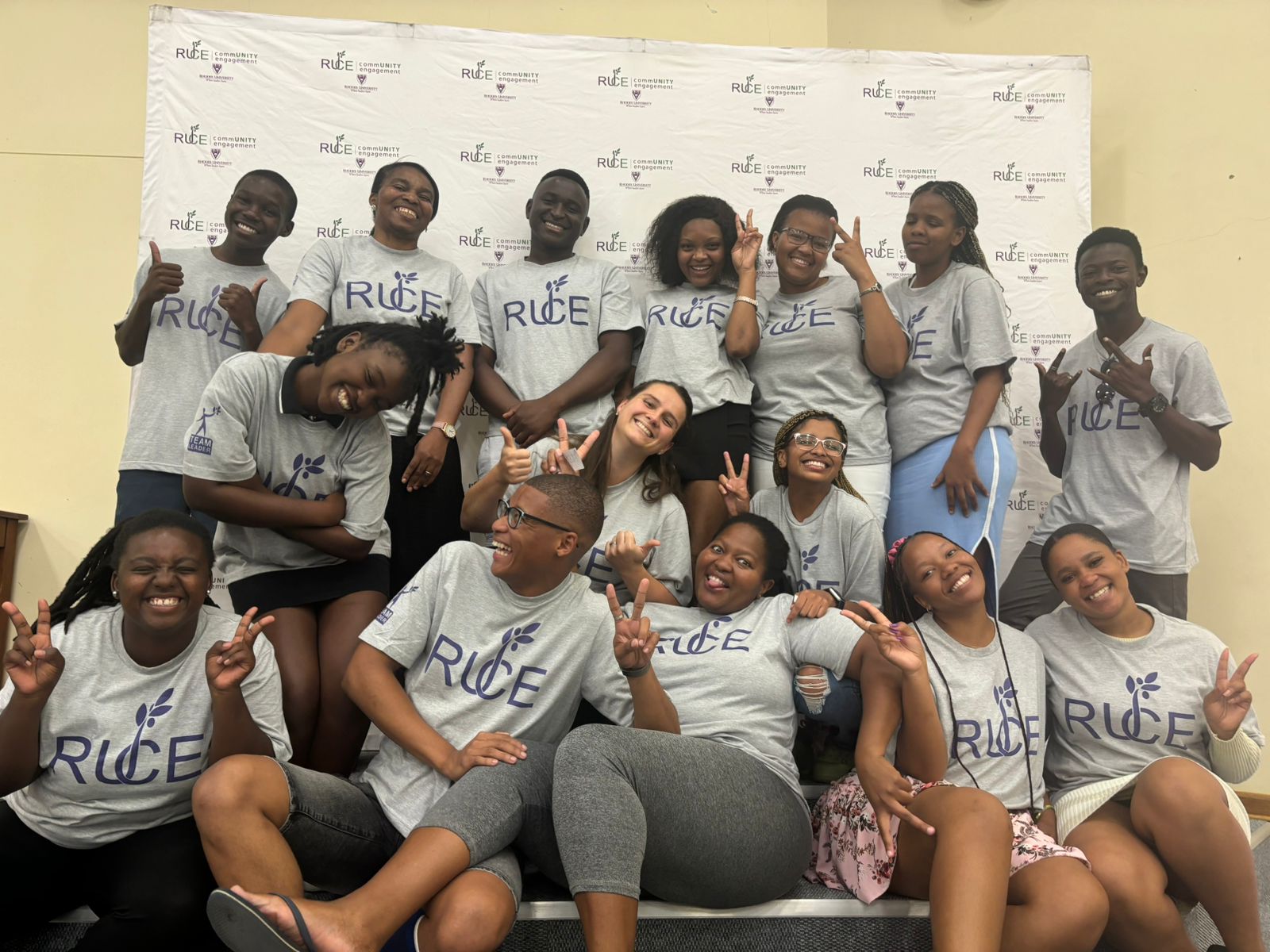
By Nizole Qete
In the vibrant tapestry of Makhanda's community, the bond between Rhodes University's student leaders and the locals forms an essential thread, weaving together a narrative of dedication and transformation. Actively participating in three distinct literacy programs across 16 primary schools, these leaders transcend the conventional role of students, becoming architects of change. Their mission is not just about academic progress; it's about instilling a profound love for reading and comprehension in the hearts and minds of young learners, enriching the community and fostering a lifelong passion for learning.
This commitment is deeply rooted in the university's ethos of community engagement. The leaders who make positive changes are not merely transient figures but individuals dedicated to building sustainable, long-term relationships with the community. Their role extends beyond imparting knowledge; it involves becoming catalysts for enduring connections and impacting the fabric of Makhanda's society.
Recently, the student leaders underwent a comprehensive training program for the year facilitated by Anna Kinser. This annual training serves as a compass, guiding them towards a more profound impact in their roles as literacy ambassadors. Through interviews, leaders shared insights into the aim of the training, emphasizing the acquisition of strategies, insights, and a profound understanding of effective literacy engagement.
The student leaders play a crucial role in building and nurturing these relationships. Regular meetings, organized by Rhodes University Community Engagement (RUCE) throughout the year, provide a platform to discuss and establish ways to enhance their impact. These continuous interactions underscore the university's commitment to improvement and growth, ensuring that the leaders stay attuned to the community's evolving needs.
Leaders like Tiisetso Nhlapo stress the significance of consistency and positivity as part of their preparation for community sessions. "When you are always present for your sessions, you gain trust from the local community, fostering open-line communication," she shares. Additionally, she emphasizes the importance of a positive attitude during sessions, noting that it has a ripple effect on learners, making them happy and engaged in their learning.
Makhanda faces a significant challenge – only 19% of grade 4 learners currently read for meaning. In response, the literacy programs, spearheaded by Rhodes University's student leaders, emerge as a beacon of hope. Their collective efforts contribute immensely to the city-wide objective of having more than 50% of grade 4 learners who can read for meaning, transforming reading from a challenge into a cherished skill among Makhanda's youth. Beyond statistical goals lies a more profound commitment to fostering a lifelong love for learning, driven by the passionate dedication of Rhodes University's student leaders.
Through their active involvement and dedication, these student leaders embody the transformative power of community engagement. Hlela Dayimani emphasizes the importance of continuous self-improvement for effective leadership, remarking, "Being open to improving yourself is essential and continued learning positions you as a knowledge-equipped leader", showcasing the commitment to personal and professional growth inherent in their roles.
The Rhodes community engagement division is committed to building sustainable, long-term relationships with the local community. An exemplary illustration of the transformative power of sustained engagement is embodied in the ongoing collaboration between a student leader, Sindi, and a learner she mentored. Even after the formal conclusion of the community engagement program, their bond persists. Sindi shared, "My bond with the learners expands beyond the community engagement program. Even though the program ended, we are still in contact even though the learner is no longer in Makhanda." This exemplifies the lasting impact and the potential for these relationships to transcend the immediate context, becoming enduring pillars of support and inspiration
The importance of community engagement extends beyond benefiting the local community as it fosters student growth. Minenhle Ndlela reflected on the broader lessons of being a student leader, "Beyond academic growth, being a student leader teaches one how to interact with people and manage time", she remarked.
In conclusion, as we reflect on the remarkable endeavours of Rhodes University's student leaders in Makhanda, it becomes evident that their commitment extends far beyond the immediate impact of their engagement. The significance lies in cultivating sustainable, long-term relationships between these student leaders and the Makhanda community. These relationships are not transient; they are the seeds of enduring collaborations that have the potential to shape the educational landscape for years to come. The vision for the future is one where student leadership acts as a driving force in shaping a brighter educational landscape for Makhanda. It envisions a community where literacy programs thrive, the joy of learning is instilled in every young mind, and Rhodes University's student leaders continue to be catalysts for positive change. Through sustained collaboration, the leaders influence the present and are instrumental in creating a legacy that will resonate in Makhanda's educational journey for future generations.
